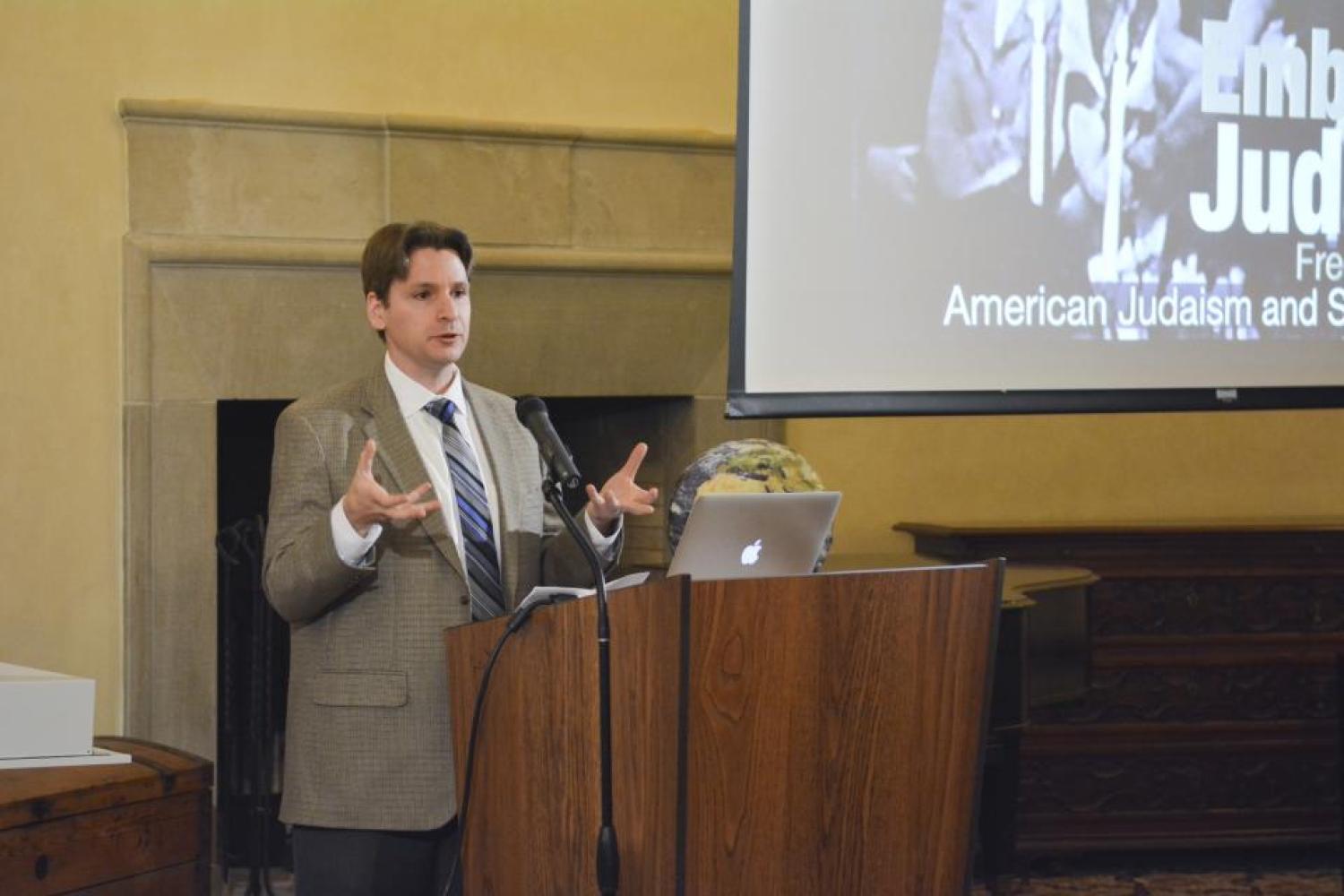Eli Sacks Hosts Embodied Judaism Event

Professor Eli Sacks Hosted the Embodied Judaism Event in November
In April 1969, on the first anniversary of the assassination of Martin Luther King, Jr., Jewish and African-American activists came together in Washington, D.C. to share a meal in solidarity, an event which came to be known as the Freedom Seder. Based on a text written by Arthur Waskow, this event would exert a long-lasting influence on American life, generating considerable controversy while also sparking new forms of political activism and religious practice across the ideological spectrum.
The content, context, and legacy of this event formed the focus of the November 2015 Embodied Judaism symposium, organized by the Program in Jewish Studies and the University Libraries with support from a variety of partners across campus, including the Department of Religious Studies. Entitled Freedom Seder: American Judaism and Social Justice, the symposium featured leading scholars and practitioners from across North America, including Rabbi Arthur Waskow, one of the central figures behind the original Freedom Seder; Rabbi Rachel Barenblat, co-chair of the board of directors of ALEPH: The Alliance for Jewish Renewal and writer of the popular blog Velveteen Rabbi; Adam Bradley, Associate Professor of English and Founding Director of the Laboratory for Race and Popular Culture at CU Boulder; and Riv-Ellen Prell, Professor of American Studies at the University of Minnesota. Elias Sacks, Assistant Professor of Religious Studies and Associate Director of the Program in Jewish Studies, welcomed attendees, and Moshe Kornfeld, Postdoctoral Fellow and Jewish Studies Lecturer, opened the symposium with a song.
In addition to the symposium, there is a walk-through exhibit that explores the Freedom Seder and its legacy on the 2nd floor of CU’s Norlin Library. It opened to the public in early November and is available for viewing during regular library hours.
The symposium and exhibit engage materials housed in the Post-Holocaust American Judaism Archive, a collaborative project between the Libraries and Program in Jewish Studies.
View the Entirety of the Symposium Below:
[video:https://youtu.be/9e5lBMUwFfM]

